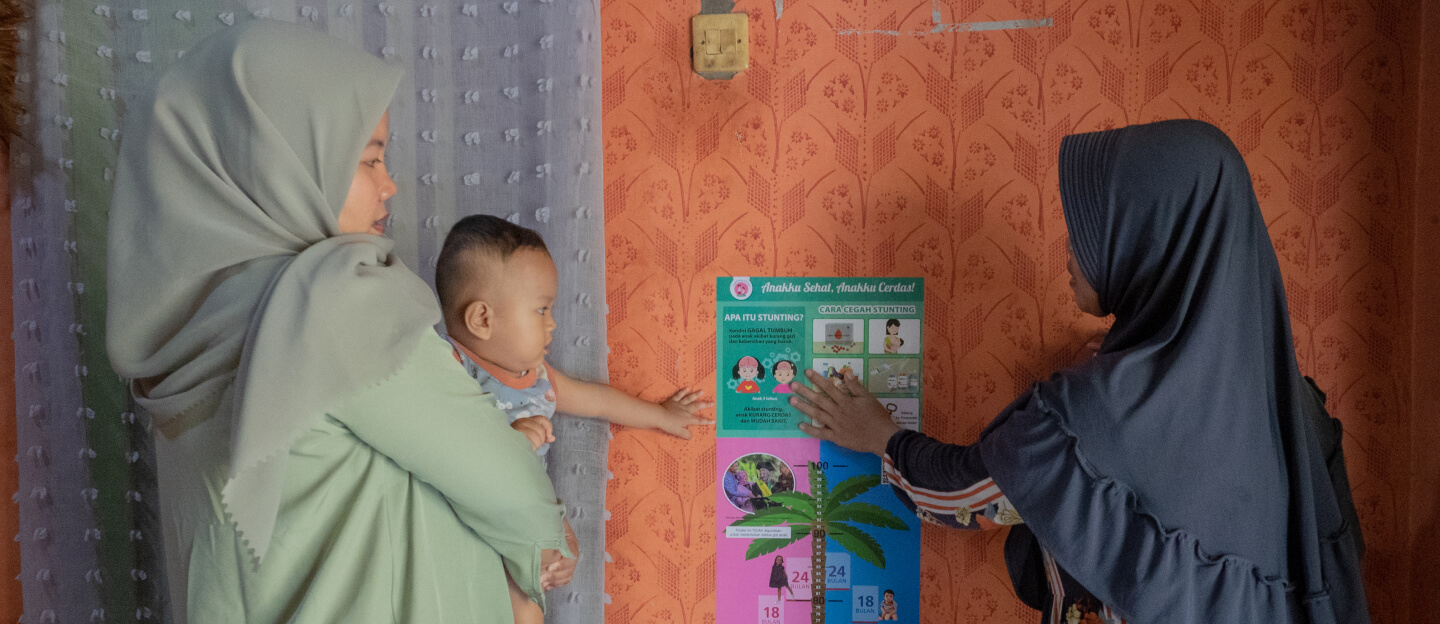FEATURED PUBLICATION
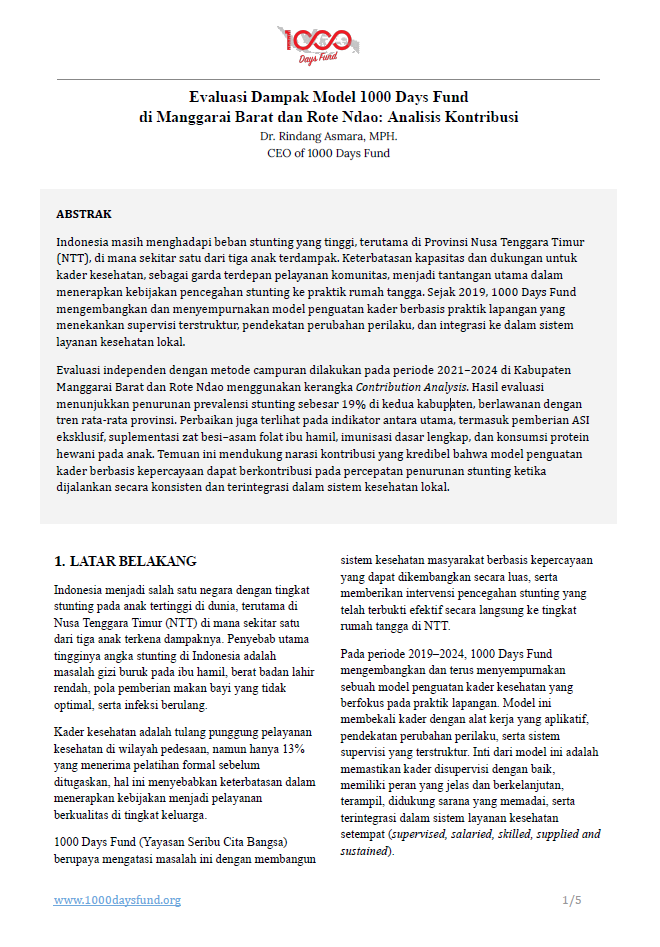
Evaluasi Dampak, 2025
Evaluasi Dampak Model 1000 Days Fund di Manggarai Barat dan Rote Ndao: Analisis Kontribusi
Evaluasi independen dengan metode campuran dilakukan pada periode 2021–2024 di Kabupaten Manggarai Barat dan Rote Ndao menggunakan kerangka Contribution Analysis.
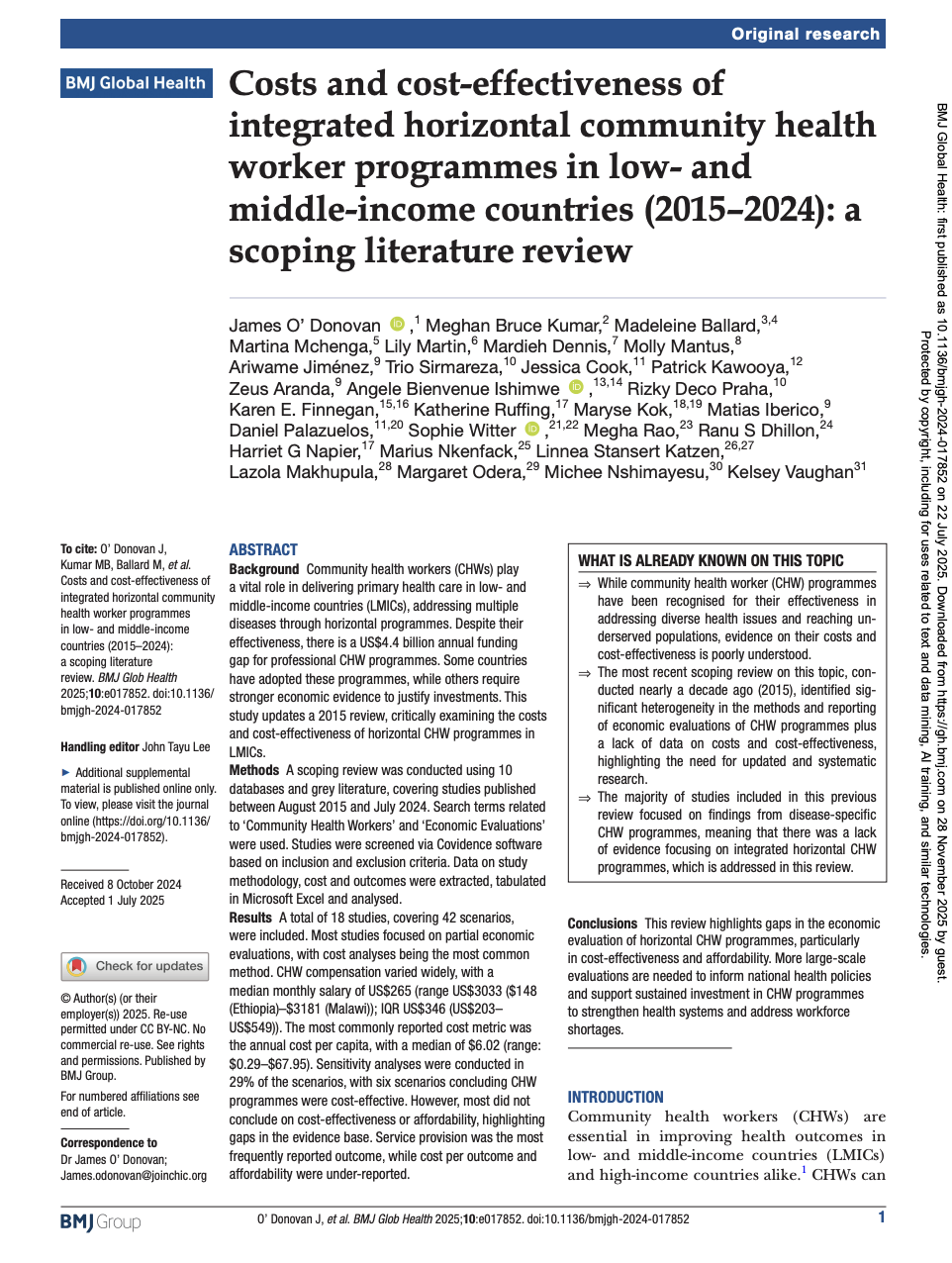
BMJ Global Health, 2025
COSTS AND COST-EFFECTIVENESS OF INTEGRATED HORIZONTAL COMMUNITY HEALTH WORKER PROGRAMMES IN LOW- AND MIDDLE-INCOME COUNTRIES (2015-2024): A SCOPING LITERATURE REVIEW
Integrated community health worker programmes in low- and middle-income countries show promise but lack consistent cost-effectiveness and affordability evaluations, underscoring the need for stronger economic evidence to guide policy investment.
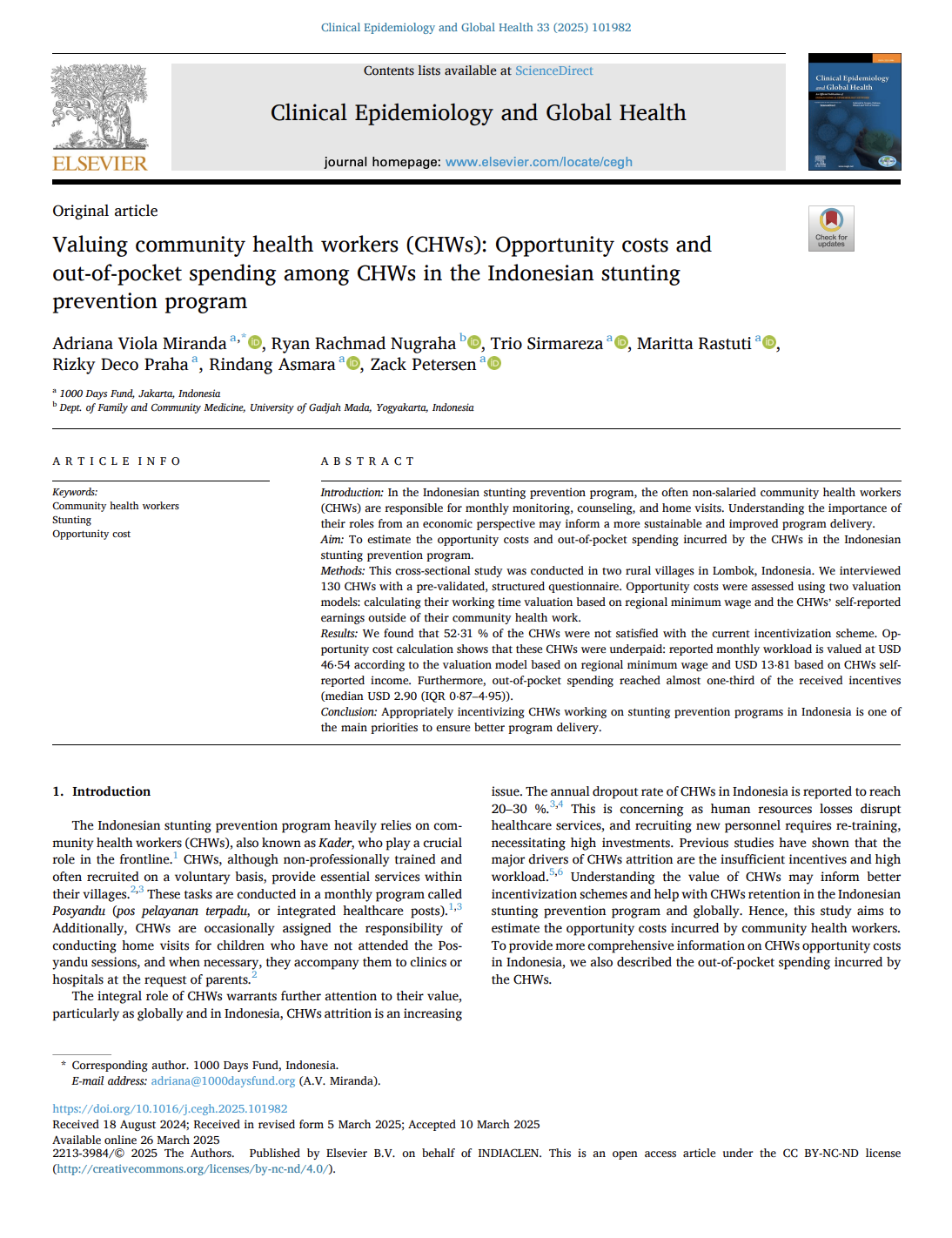
Clinical Epidemiology and Global Health, 2025
VALUING COMMUNITY HEALTH WORKERS (CHWS): OPPORTUNITY COSTS AND OUT-OF-POCKET SPENDING AMONG CHWS IN THE INDONESIAN STUNTING PREVENTION PROGRAM
Community health workers in Indonesia bear significant opportunity costs and out-of-pocket expenses, receive inadequate incentives, and remain undervalued, highlighting the urgent need for better compensation to strengthen stunting-prevention efforts.
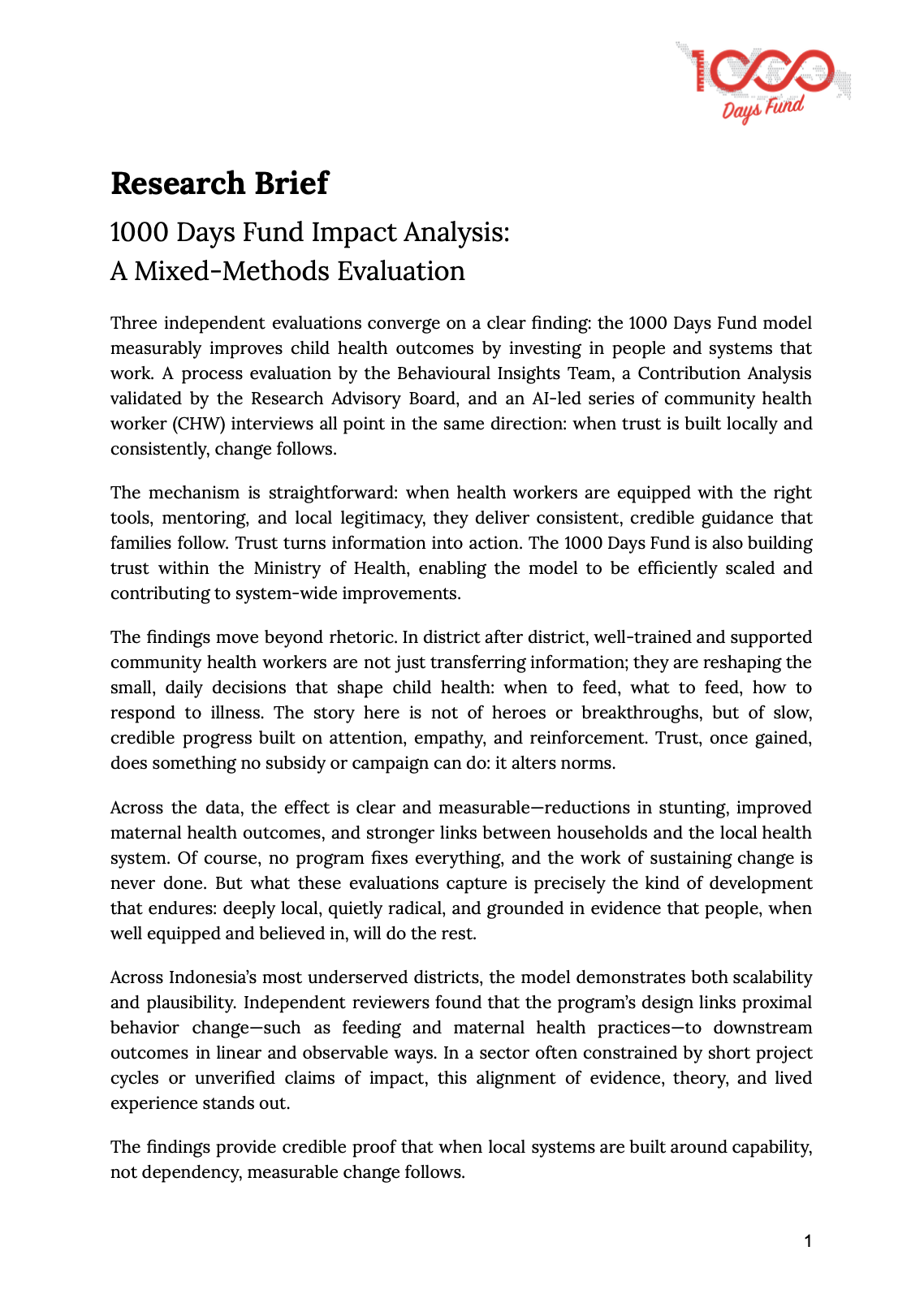
Contribution Analysis (Independent Evaluation/Mixed Methods Research), 2025
EVALUATING THE IMPACT OF THE 1000 DAYS FUND MODEL IN MANGGARAI BARAT & ROTE NDAO: A CONTRIBUTION ANALYSIS
Between 2021 and 2024, the 1000 Days Fund set out to answer this core question: Did our model actually move the needle on reducing childhood stunting in Manggarai Baratand Rote Ndao, East Nusa Tenggara (Nusa Tenggara Timur or NTT). We commissioned the services of an independent researcher and embraced a contribution analysis approach, to surface what changed, why, and how we can do better. Childhood stunting is not a single-response issue. It cannot be solved by one intervention alone, but through the convergence of multiple, reinforcing solutions. From household behaviours and community health systems to local governance and data use. This evaluation assesses the contribution of the 1000 Days Fund to reducing childhood stunting in Manggarai Barat and Rote Ndao, East Nusa Tenggara. The evaluation draws on triangulated evidence from internal monitoring data, secondary analysis of government surveys, and independent external review by some members of the Research Advisory Board. Together, these sources provide a credible picture of how 1000 Days Fund interventions have influenced maternal and child health outcomes, community health worker (CHW) capacity, and stunting prevalence.
- 1
- 2

